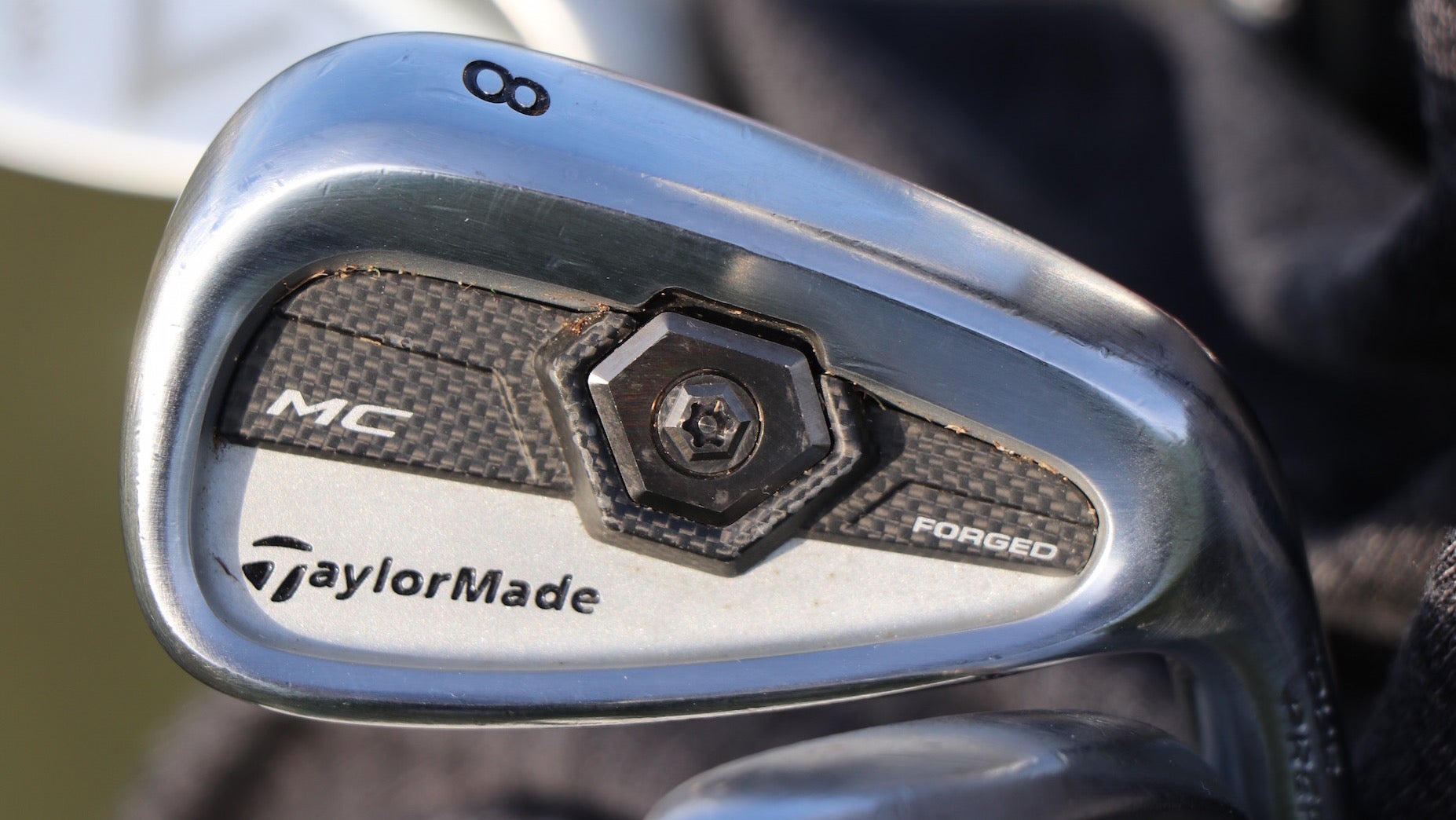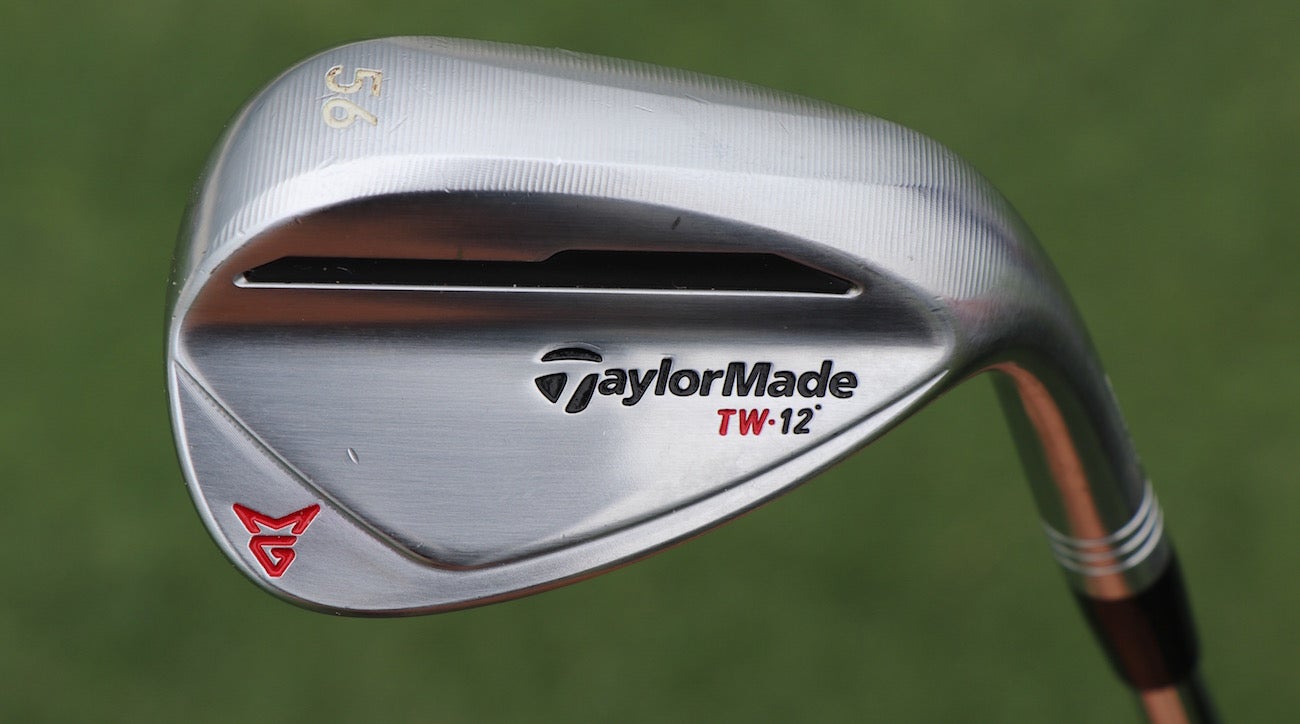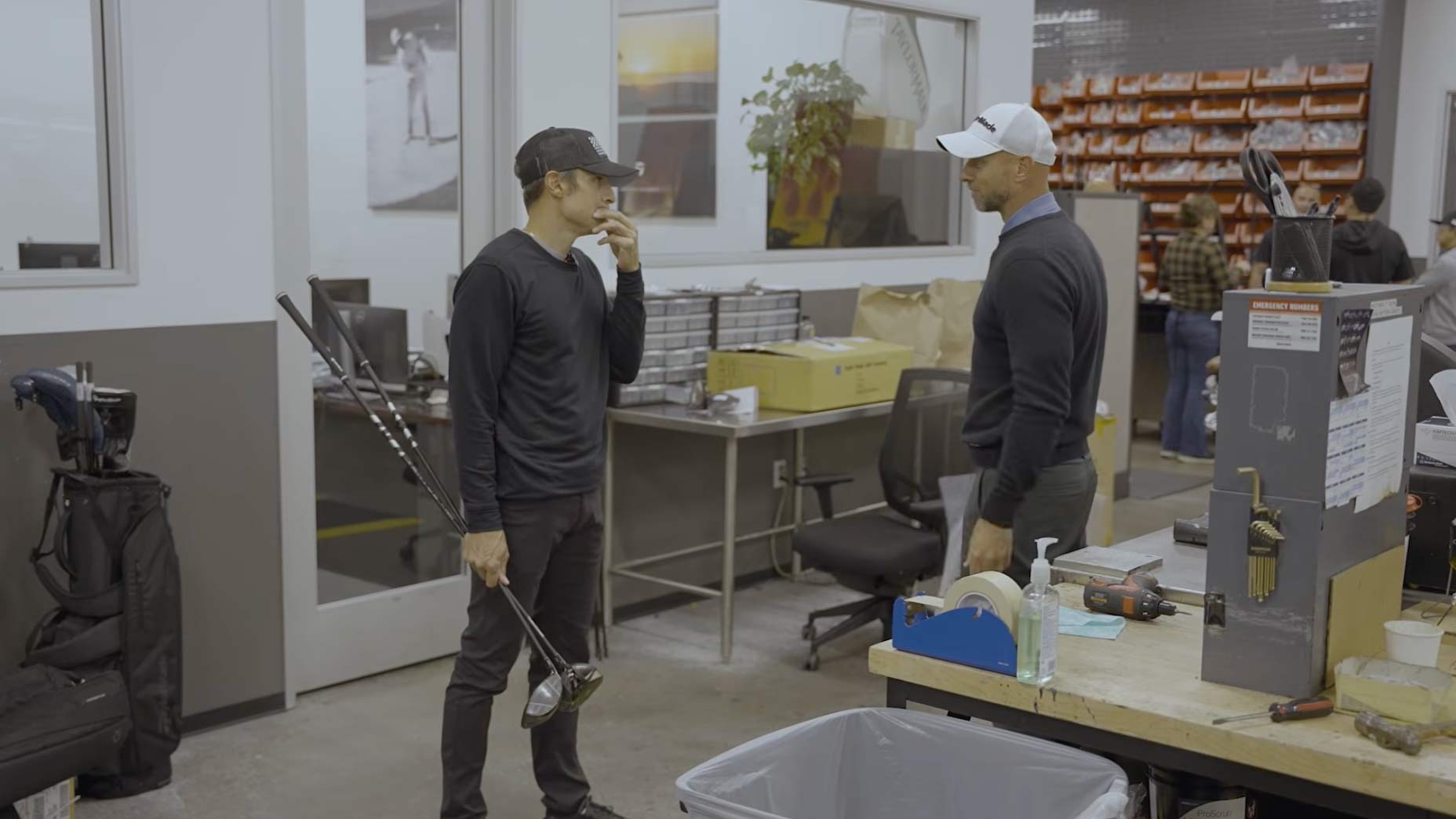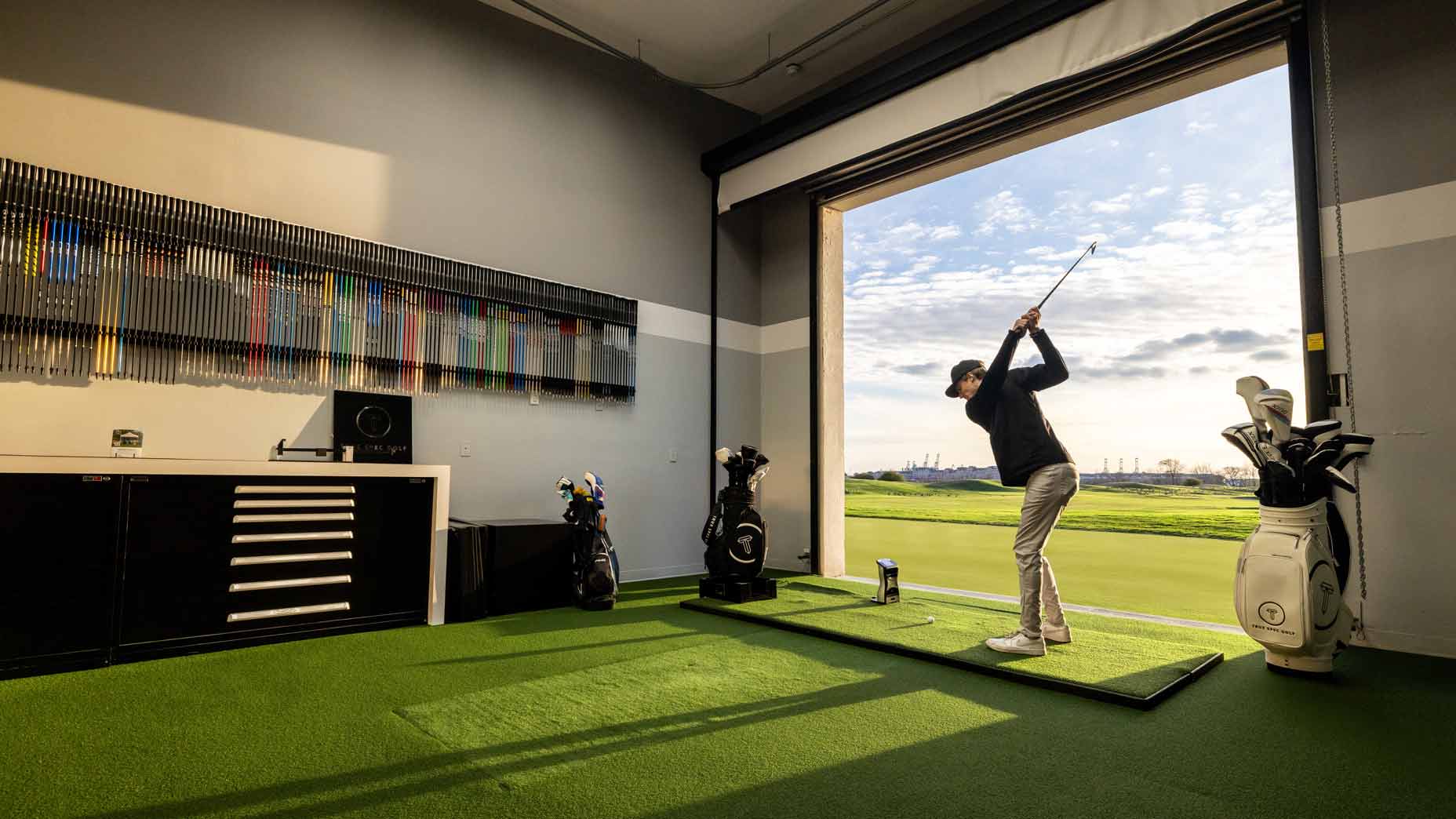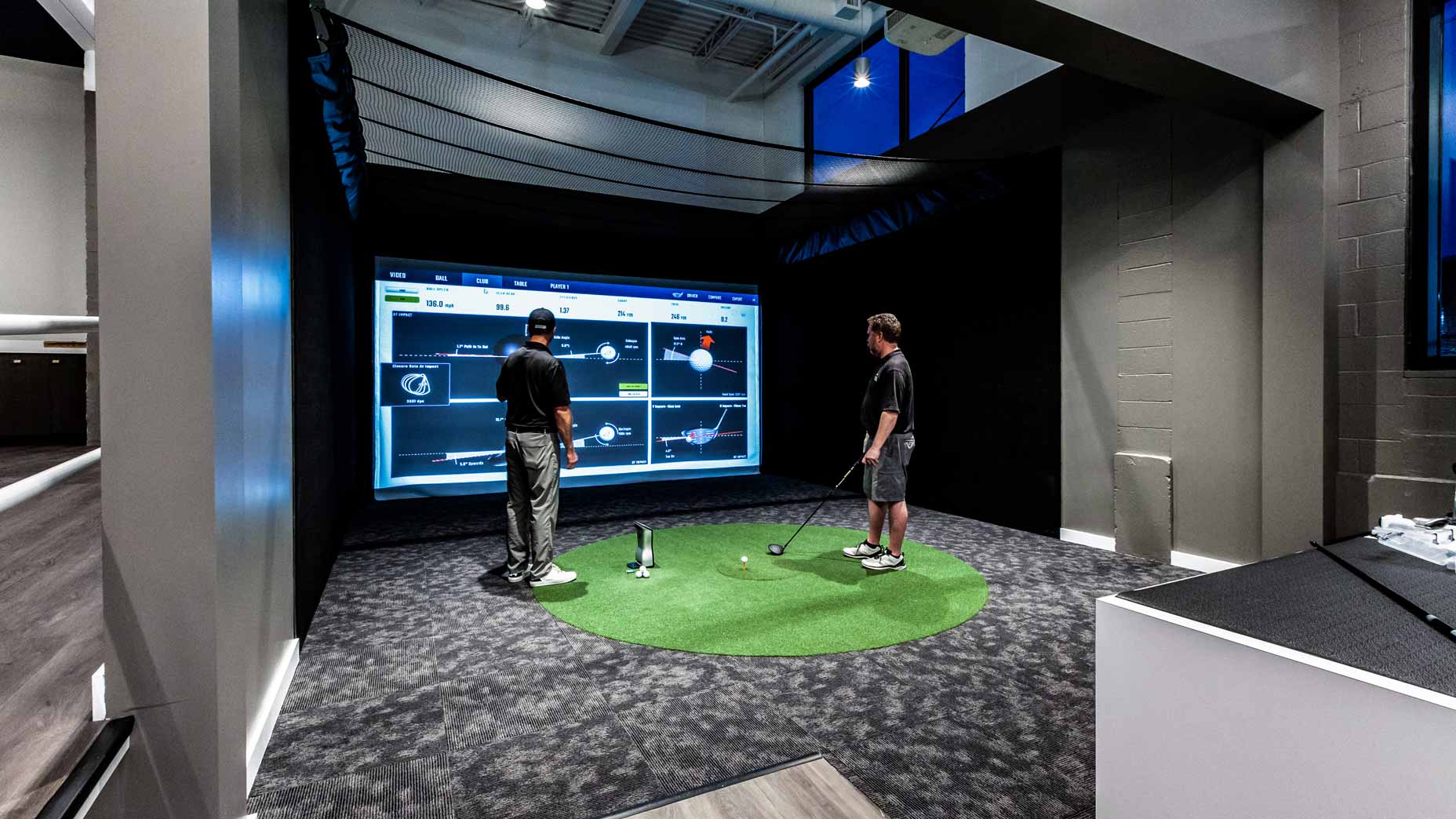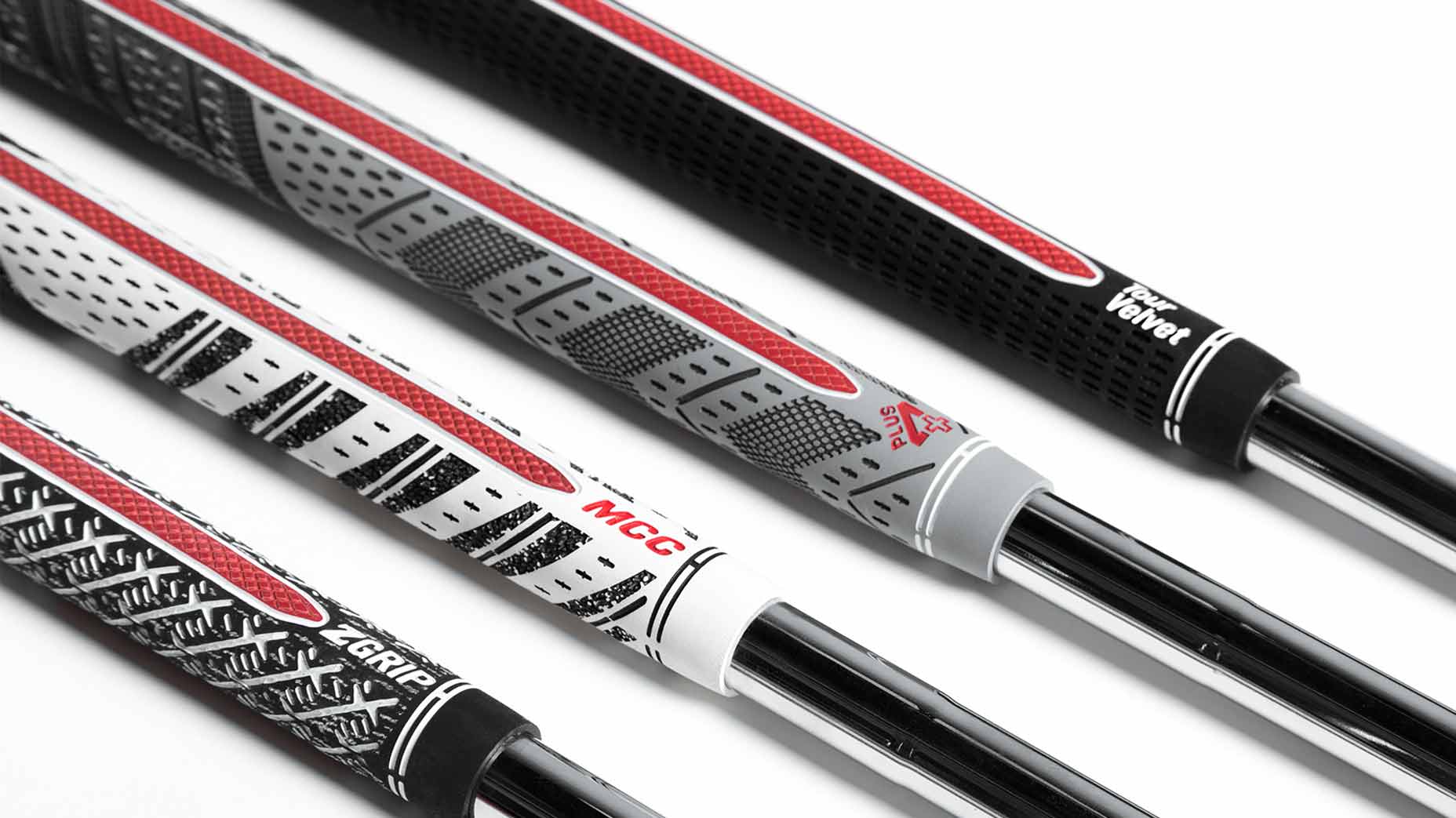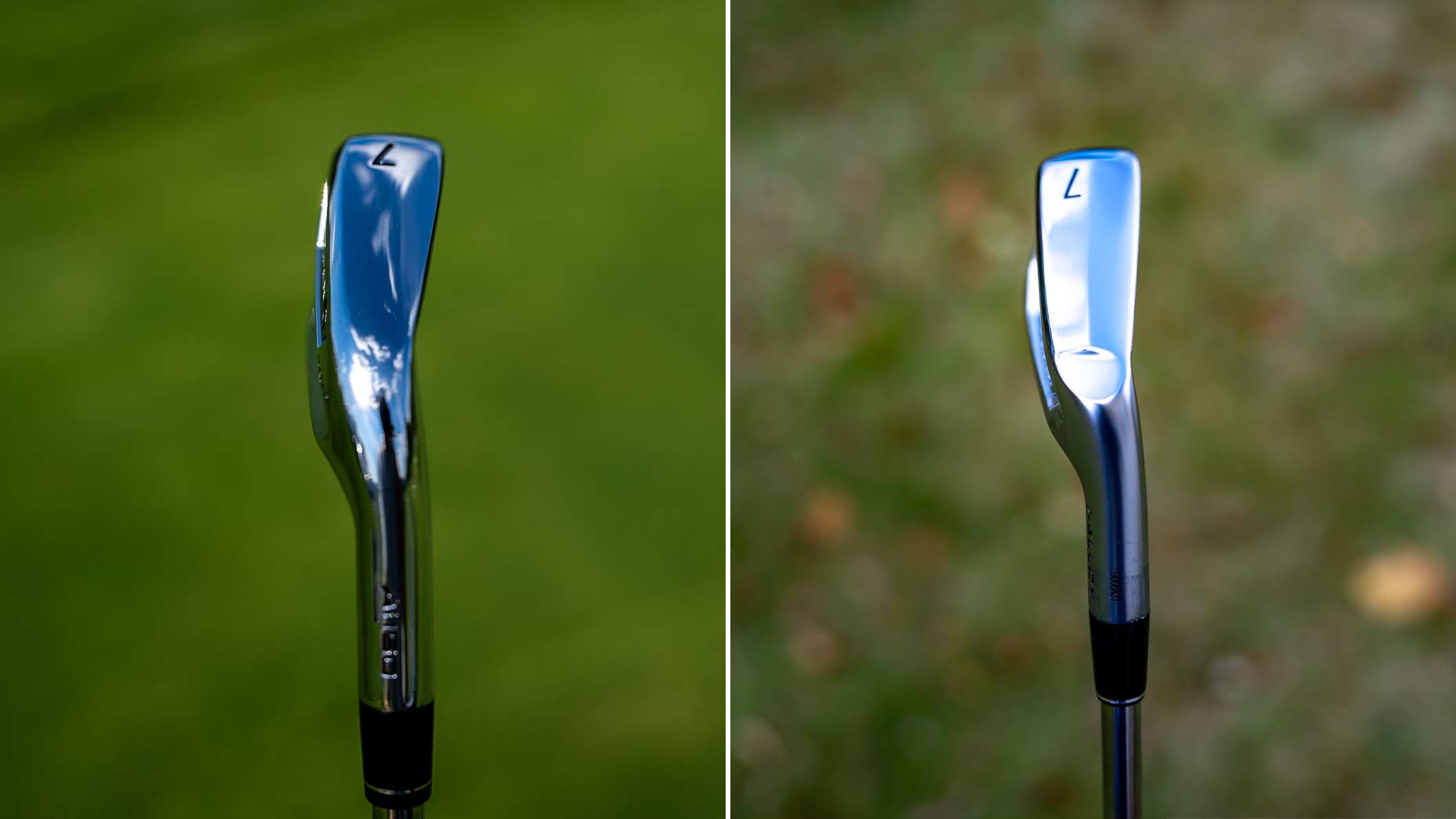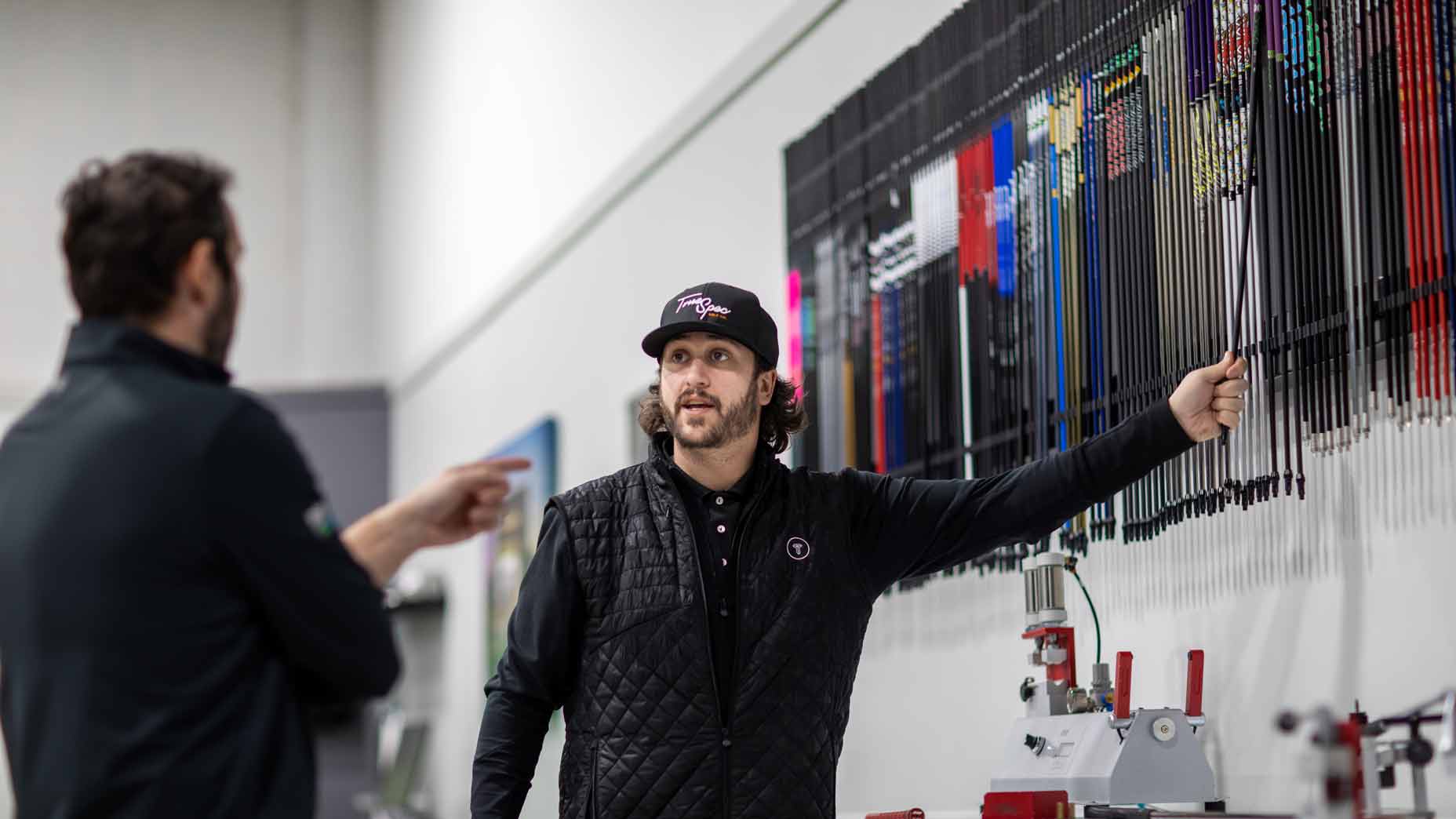Many amateur golfers of varying skill levels stunt the improvement of their games by believing they’re “not good enough” to get a club fitting. They say that once their golf game starts to improve they’ll invest in a professional fitting, but it’s not worth it yet.
In order to set the record straight, I spoke with a professional club fitter (Tim Briand, Executive Vice President of GOLF.com’s sister company, True Spec Golf) and a professional swing instructor (Todd Sones, a GOLF Magazine Top 100 Teacher). Even though Briand is a club fitter and Sones is an instructor, both experts agreed that learning the game using poorly fit equipment is a huge hinderance on both improvement and enjoyment.
“Some golfers believe they have to get to a certain level to get fit, but that’s a wrong perception,” Sones said. “Using the wrong clubs for you can negatively influence your swing and lead you to form bad habits.”
Sones compared learning the game with wrong clubs to learning to ride a bicycle on a bike that’s way too small, or too big. Not only does poorly fit equipment lead you to poor swing development, but it also makes the game more frustrating, deterring you from even continuing on with the game.
“It’s very important that beginners get fit because we develop our swings around the gear we use without even realizing it,” Briand says. “For example, John Daly started out by using his dad’s heavy golf clubs, so one of the reasons he developed a long backswing was because he didn’t have the strength early on to hit the clubs.”
Obviously, it worked out in the end for Daly, but that anecdote goes to show how your swing can be greatly influenced by the clubs you use early on as you learn the game. If a club is too short, too long, too light, too heavy, the lie angle is completely wrong, the club itself is the wrong design, or any of a number of factors are off, you could be setting yourself up for failure.
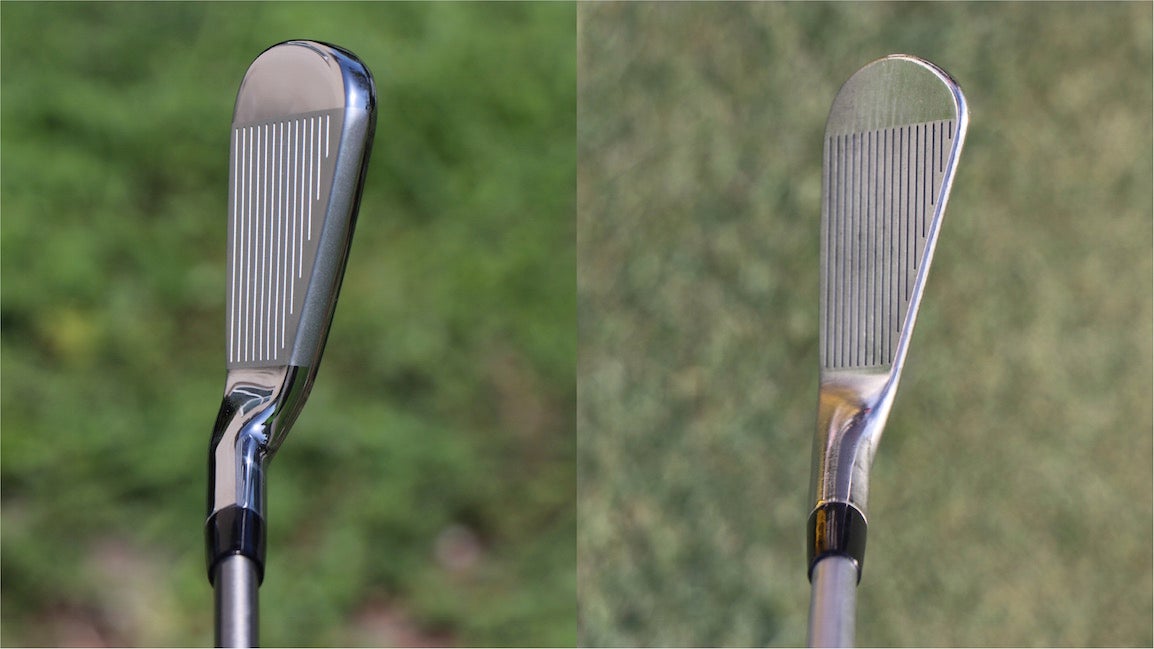
“Sometimes people have a bad first couple experiences with golf and they’re deterred from the sport before they even really get started, but that could be because they have clubs that aren’t suited for their swing,” Sones says.
So, what is the right way to go about getting the proper clubs, and also improve your golf swing?
Both Briand and Sones agree on a solution. Prior to taking lessons and changing your swing around, you should consult a professional fitter or a local pro to get a baseline club evaluation. With that expert, you should ensure that the clubs you have are right for you, or at least in the right wheelhouse. If they’re not, either have a club builder make alterations, or replace your clubs with different options.
When you get that club consultation, listen carefully to what the expert says and take thorough notes. For beginners, it’s likely the expert recommends more loft on your driver, lighter shafts with less flex, and more forgiving irons. For example, if you’re a beginning golfer who has blade irons with long, extra-stiff steel shafts, it’s likely they aren’t right for your game. So even if your swing greatly improves with the help of a top instructor, you’ll be fighting an uphill battle.
Now, it’s important to remember that you do not have to buy the latest and greatest equipment for it to be a good fit. You don’t have to spend $3,000 on shiny new clubs, and you actually don’t even have to buy a full set.
Sones recommends beginning students start with just a few clubs that fit correctly. For example, you can start with just a sand wedge, a pitching wedge, a 7-iron and a driver. This gives you a few proper tools to learn with.
Once you get a few clubs or a full set that’s in the right wheelhouse for your skill level, physical size and budget, then you can really start improving your swing with an expert instructor. Take the money you saved by purchasing second-hand equipment to invest in lessons from a skilled teacher.
7 golf equipment tips that can help beginners improve right nowBy: Andrew Tursky
“Your experience on the front end really has an effect on whether or not you enjoy the game,” Sones says. “You should consult with a club fitter as soon as you know you’re going to play the game. Then, do your research. Find a good instructor. Remember, one good lesson could be worth five mediocre lessons in the long run.”
Also, once you find the right instructor, communication is huge. Talk to your teacher about your equipment. Tell the instructor about the equipment you have, and that you plan on getting a full club fitting in the future. Try to put your club fitter in touch with your swing instructor to put together a full, comprehensive plan.
It is likely that your swing patterns will change after a number of lessons. Your angle of attack may change, your method of releasing the club could shift, and you will (hopefully) gain some speed and strength, too. When those improvements start to take shape and your game advances past your starter set, then you’re ready for a full bag fitting and can invest money into new clubs.
In conclusion, here are the recommended steps to take in order to set yourself up to to play great golf and enjoy the game for years to come:
1. Get a basic club consultation from an expert
2. Make the proper alterations to your current set, or purchase a budget-friendly starter set (anywhere from 1-14 clubs)
3. Research instructors in your area and pick one
4. Communicate with your instructor about your equipment
5. Work hard to improve your swing
6. When your game and finances are ready, get a full bag fitting and purchase the right clubs for you
To hear more gear insights from Jonathan Wall, subscribe and listen each week to GOLF’s Fully Equipped and to book your own fitting at True Spec click the link right here!
